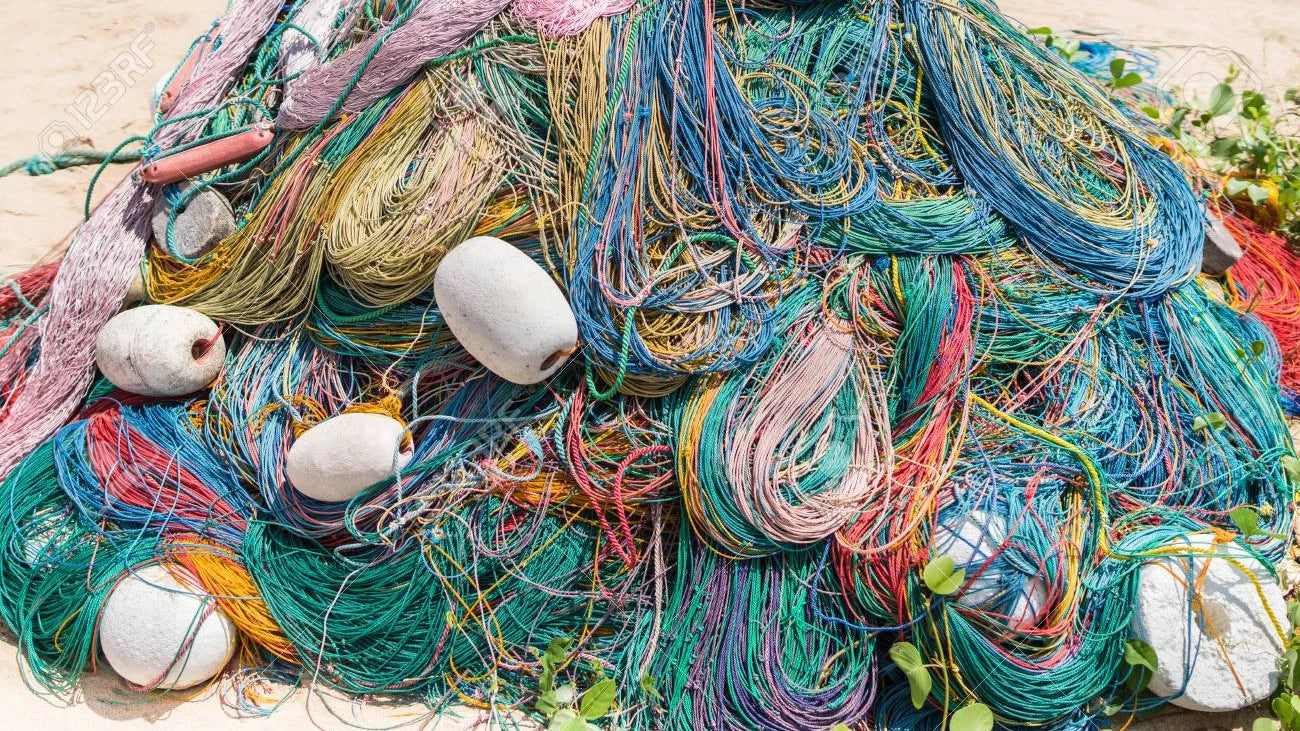
Anglers: Love what you do; do what you love! Fish sustainably.
BE THE CHANGE YOU WANT TO SEE IN THE WORLD- IT WORKS!
You've heard that by 2050 there will be more plastic than fish in the ocean.
You know that plastic hangs around for about 600 years in the marine environment.
You might have read about that local voluntary action group working to maintain the local marine wildlife close to your favorite angling spots.
In the best case scenario, you reading this means you want to help by being the change. Not littering by taking your rubbish home and leaving your fishing spot cleaner than how you found it are great places to start.
For the angler who wants to know more- you've come to the right place! This webpage was designed to help inform you on how to prevent further gear loss to benefit both the environment and your pocket all the while encouraging you to understand the marine environment better and your capacity to support the local and global human and animal community through responsible actions, no matter how small…
If you're looking to know more about improving your angling techniques to support this ambition of yours, you might want to read:
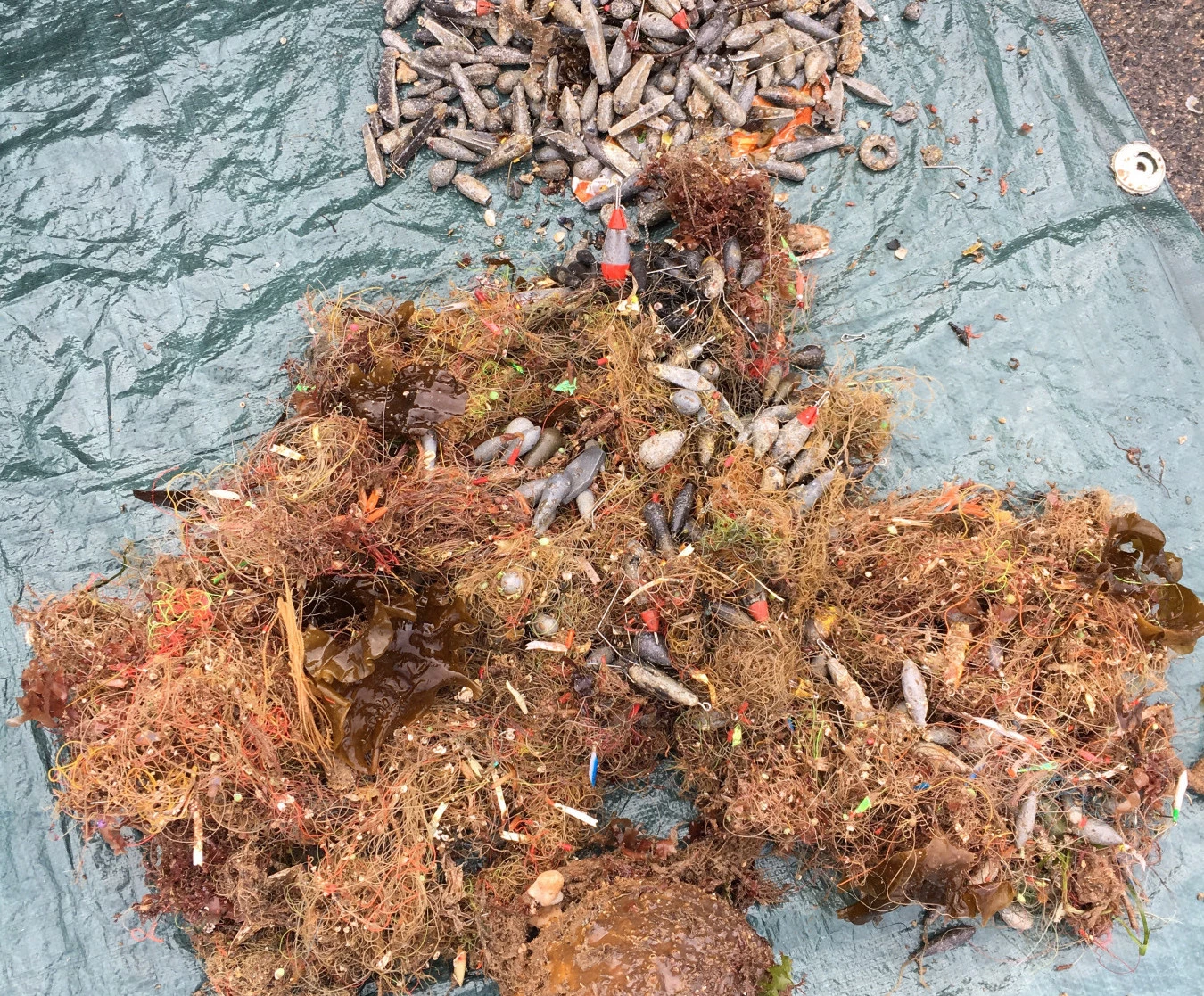
TIPS TO AVOID GEAR LOSS: REELS & LINE
Consider Line weight/thickness: A heavier line means it won’t get as abraded as its thinner alternative and will hold more efficiently against ruthless rocks- this will allow you to enjoy a snag-less fishing experience.
Consider Line strength: Lines need to be considerably stronger when fishing over rough ground from rock marks, whether you opt for braided or monofilament line.
Braided line: Braided lines are a type of fishing line that consists of several interwoven strands. Braid offers high breaking strengths with low diameters but has poor abrasion resistance, because of this it is recommended to not be used when fishing amongst rocky structures. If you are a big fan of braid and don’t want to change it, then perhaps consider connecting an 18-25 inches mono or fluoro leader to your mainline to provide the necessary abrasion resistance, this in turn will reduce the amount of lost tackle and plastic pollution in the sea.
If you're interested in knowing more, see our article below on how to help maintain your lines better...
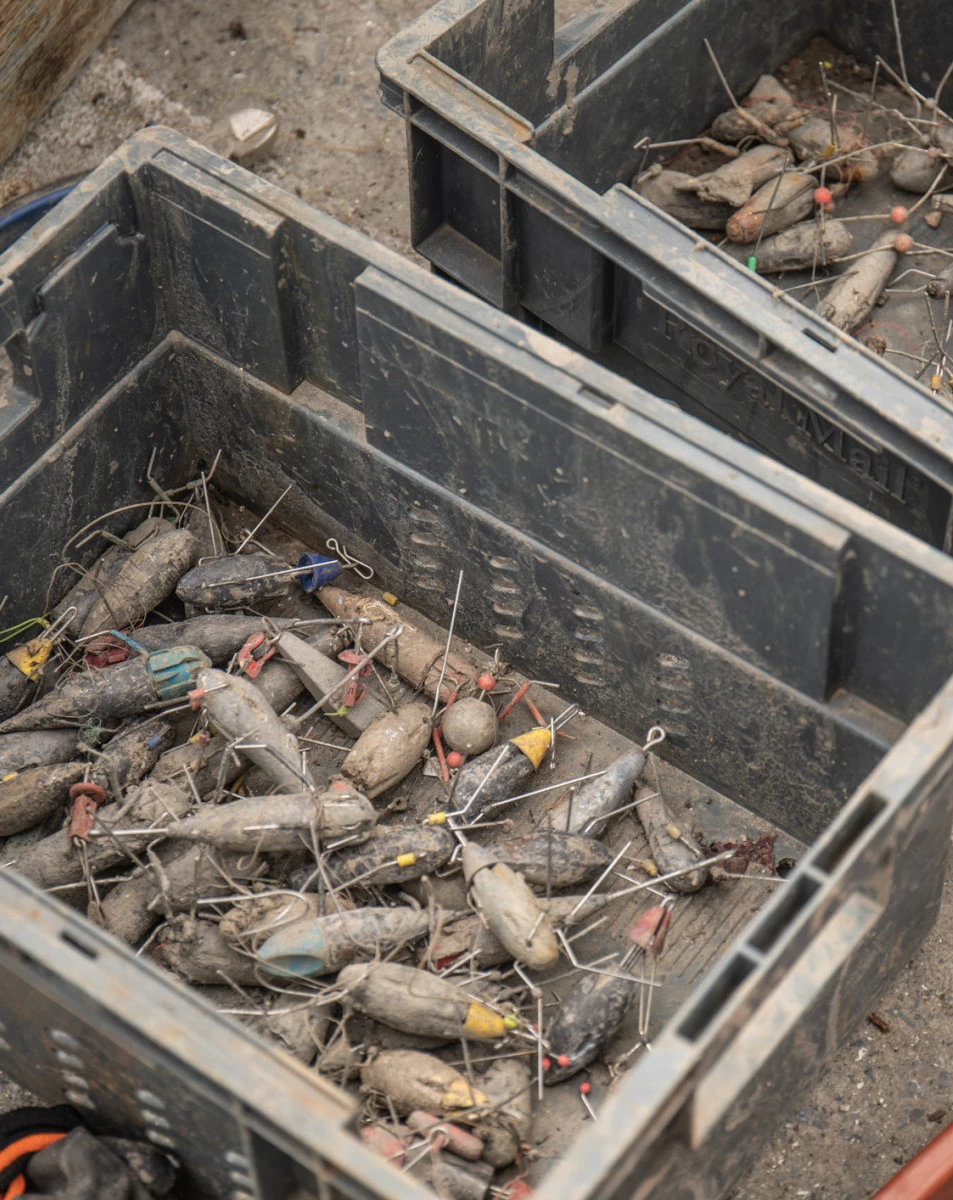
TIPS TO AVOID GEAR LOSS: SINKERS
Losing sinkers will not only amount to a significant loss of money, but will be immensely frustrating throughout your supposedly relaxing fishing session and will cause damage to the environment by not only littering but also leaching toxic chemicals into the marine environment; so for everyone’s sake please consider learning more about how to prevent gear loss.
Anglers are lost for choice when faced with the plethora of weight shapes and sizes available to them, however one should consult with an expert/local angling shop assistant prior to their purchase as there are several factors to consider such as:
1) The environment you intend to fish in (is it rocky, sandy or mixed?) including the depth at which you want to fish and the topography of the bottom of the water. (For seaweed fields consider using longline, skinny or tear weights- these shapes make it easier to pass through the algae without getting caught. For fine sand areas between rocks consider hook-type sinkers and plain leads whilst fishing on a sandy beach as it will roll around and find indentations and gullies which hold fish . In rocky areas, a leader should not have edges, hooks, or any other grip, consider using a running ball-shaped sinker to minimize the risk of snags; if you use a plain lead in an area full of snags, you will see it roll around until it eventually ends up in a snag).
2) The rod you are using
3) The weather condition (on windy days you will want to choose weights that have some type of grip so as to cling to the bottom and avoid displacements).
4) The line to be used in each case (a heavy lead on a thin line will eventually split it and if the sinker is too light then it will float in the water. Similarly, if it is too heavy it will get down to the bottom and will get caught in rocks/seaweeds/junk present at the bottom).
You may also be interested in researching various alternatives to store-bought weights, do-it-yourself kits and sustainable/ eco-friendly variants.
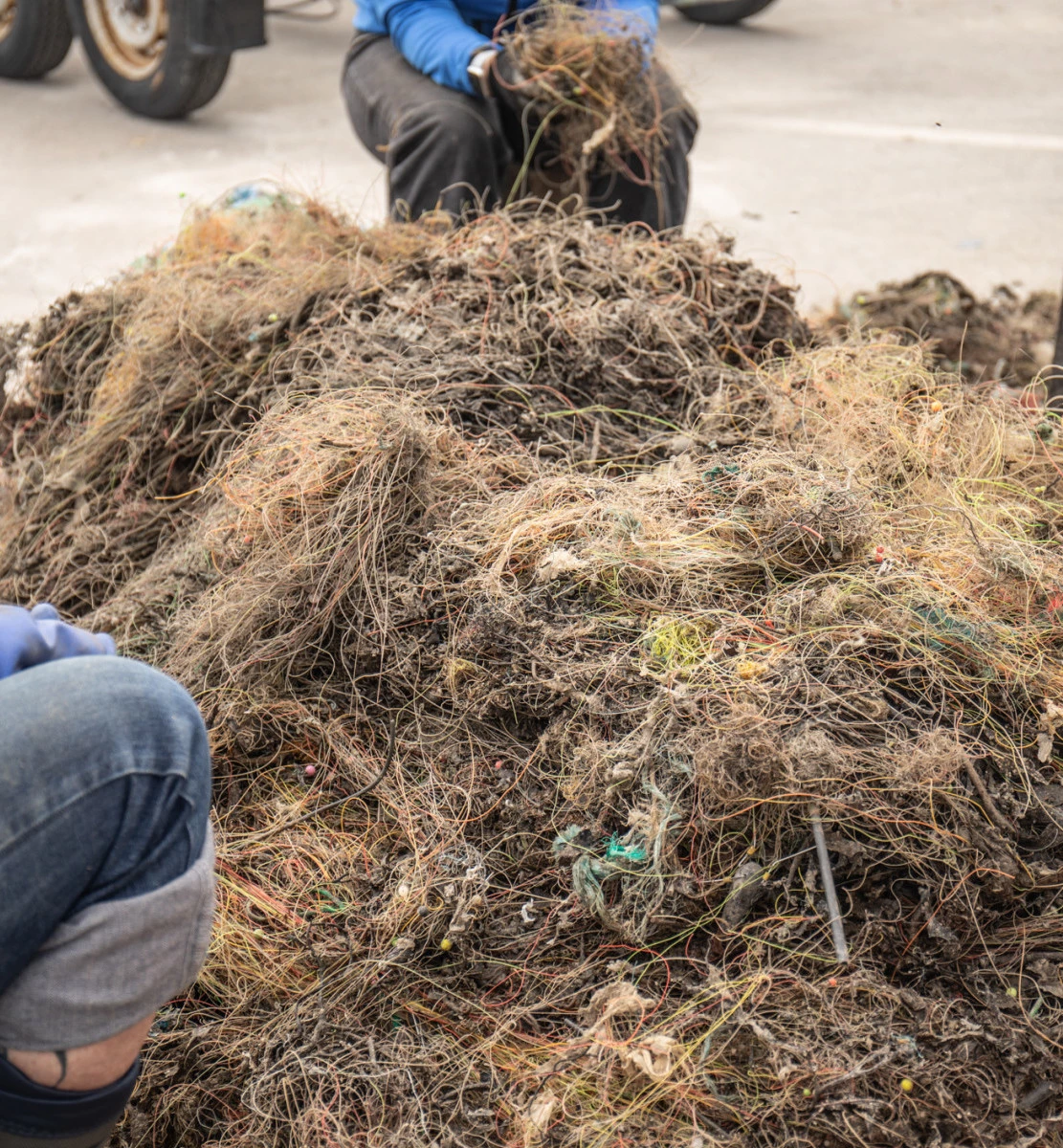
TIPS TO AVOID GEAR LOSS: TACKLE
1) Metal spinners like the ‘dexter wedge’ (and the more sleek modern casting jigs that have come after them) still work and are fantastic for a wide range of species. They are of course far more prone to snagging over rough ground, but the jigs with smaller, single hooks are much better in this regard.
2) Using surface lures (like the Pachinko) is great for avoiding snags since the lure floats well away from the weeds. It’s therefore possible to catch hundreds of fish on one lure until you eventually lose it. This not only saves you lots of money on lost lures in the long run but also helps reduce ghost fishing and plastic pollution in the marine environment.
3) Ensure your lures are not strapped in too tightly as this may result in the breaking of the fishing line. You only have to make sure that everything is in place while providing enough pressure on your knots.
4) If you have a large collection of lures, the likelihood is that you’ve spent quite a lot of money on them, therefore it might make sense to consider buying a lure retriever- if spending a few dollars on one of these gets you a few back then they will pay for themselves pretty quickly. This will also save the marine environment from further littering/plastic pollution and ghost fishing.
5) It’s essential that your flourocarbon leader is lighter than your braid.
6) Another option for your rockfishing rig is to use a float. You can suspend your sinker a few meters under a bobby cork. If you don’t want to use floats to keep your bait a few inches above the bottom, you can use the paternoster rig, which relies on a three-way swivel that keeps the bait above the sinker.
7) Exposed hooks get tangled in plant foliage so keep your hook point tucked away/un-exposed or else consider weedless options like plastic baits on a Texas rig. Flipping jigs and spinnerbaits are tough to beat in weedy environments.
8) Pulley rigs are specifically designed to reduce the chances of getting snagged when reeling fish in over snaggy ground, while other rigs incorporate a weak link section which allows the weight to become detached if it becomes snagged.
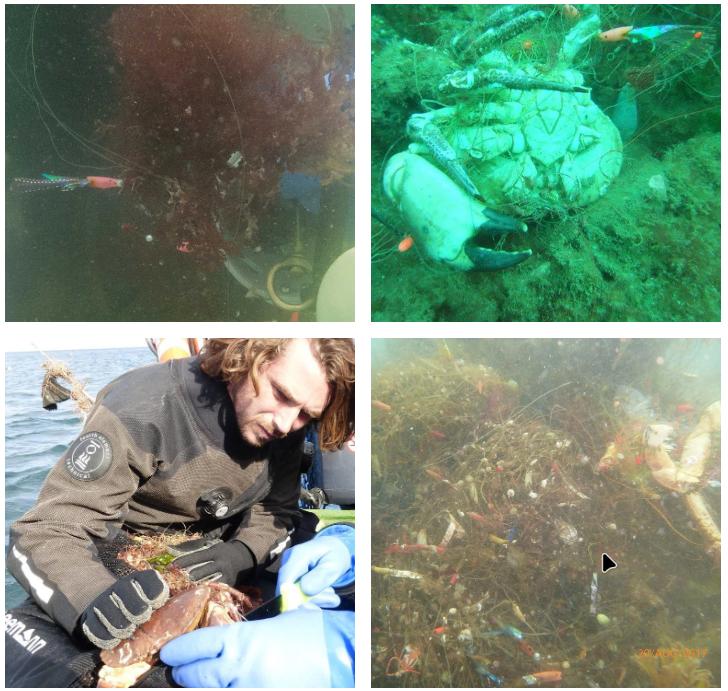
TIPS TO AVOID GEAR LOSS: RODS
Consider Rod Weight: If your rod is too heavy, it will be harder to detect where the bottom of the seabed is; this could lead to you spending your whole session sorting out snags.
Consider Rod Length: a long rod will allow you to have more control when trying to free the line after it gets caught between rock piles, kelp, and weed. Often rods between 9 to 12 ft (2.7 to 3.6 meters) are recommended to reduce the contact with anything that can catch or break your line. A longer rod also allows longer casting distances, better landing, and more accurate targeting.
Rod maintenance: occasionally you should examine the condition of the fishing line guides on your rod. These are the little hoops running down the length of the fishing rod which your line runs through to guide it when it de-spools and spools. The outside of the guide is usually made from metal, but the inner part is from hard plastic or even ceramic. If the inner part of the line guide is damaged, cut, or has fallen out completely, it can damage the line as it runs through the guide, fraying it or even causing it to break.
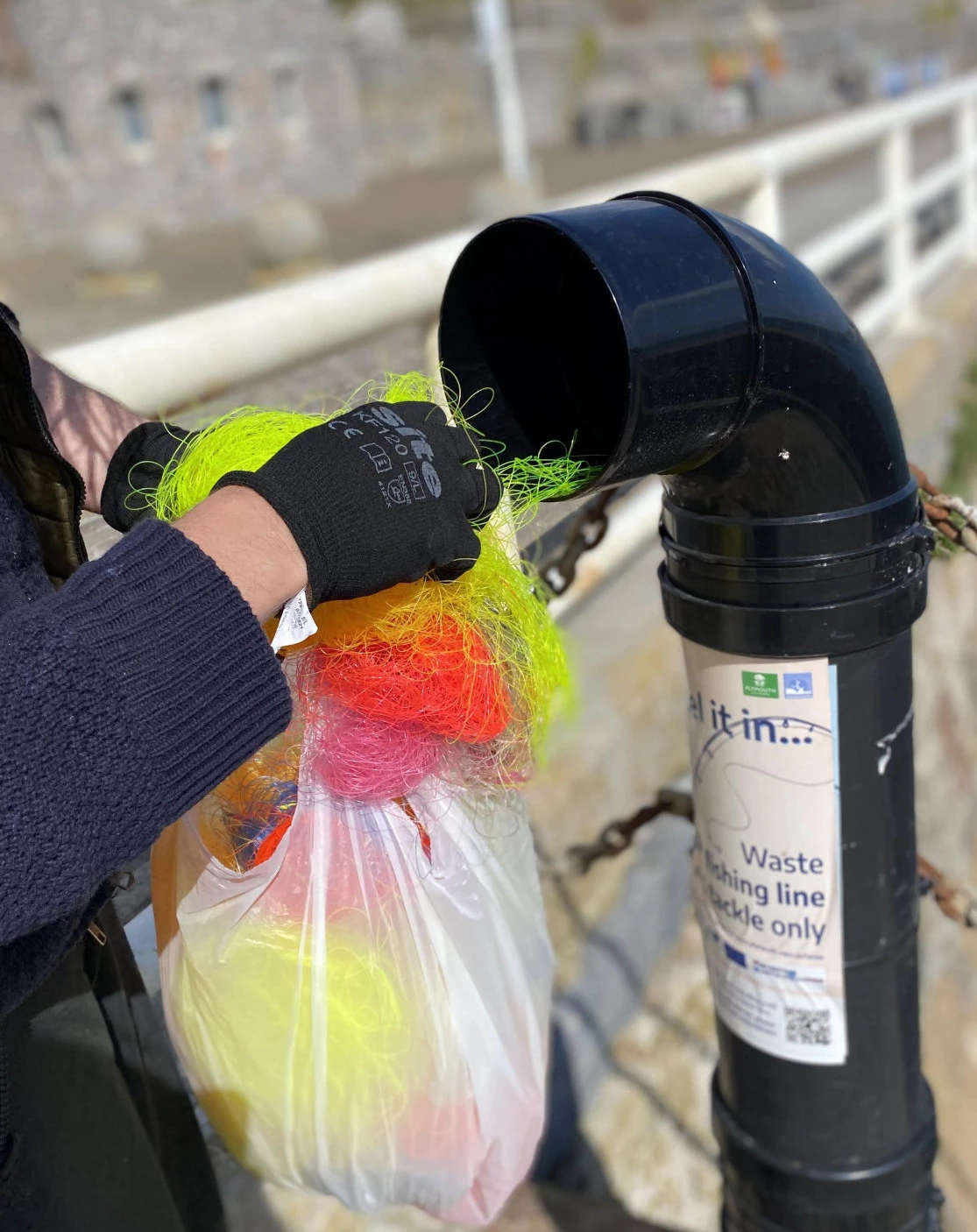
COLLABORATION TO RECYCLE YOUR ANGLING LINE
About Preventing Plastic Pollution:
This project is a European funded project which brings together a partnership with 18 organizations from across France and England. It seeks to understand and reduce the impacts of plastic pollution in the marine environment. By looking at the catchment from source to sea, the project is identifying and targeting hotspots for plastic, embedding behavioral change in local communities and businesses, and implementing effective solutions and alternatives.
The Project's Drop off Points:
1) Cornwall beach
2) Mutton Cove
3) West Hoe Pier
4) Elphinstone
5) Mount Batton break Water East
6) Mount Batton Break Water West
7) More coming soon...
-
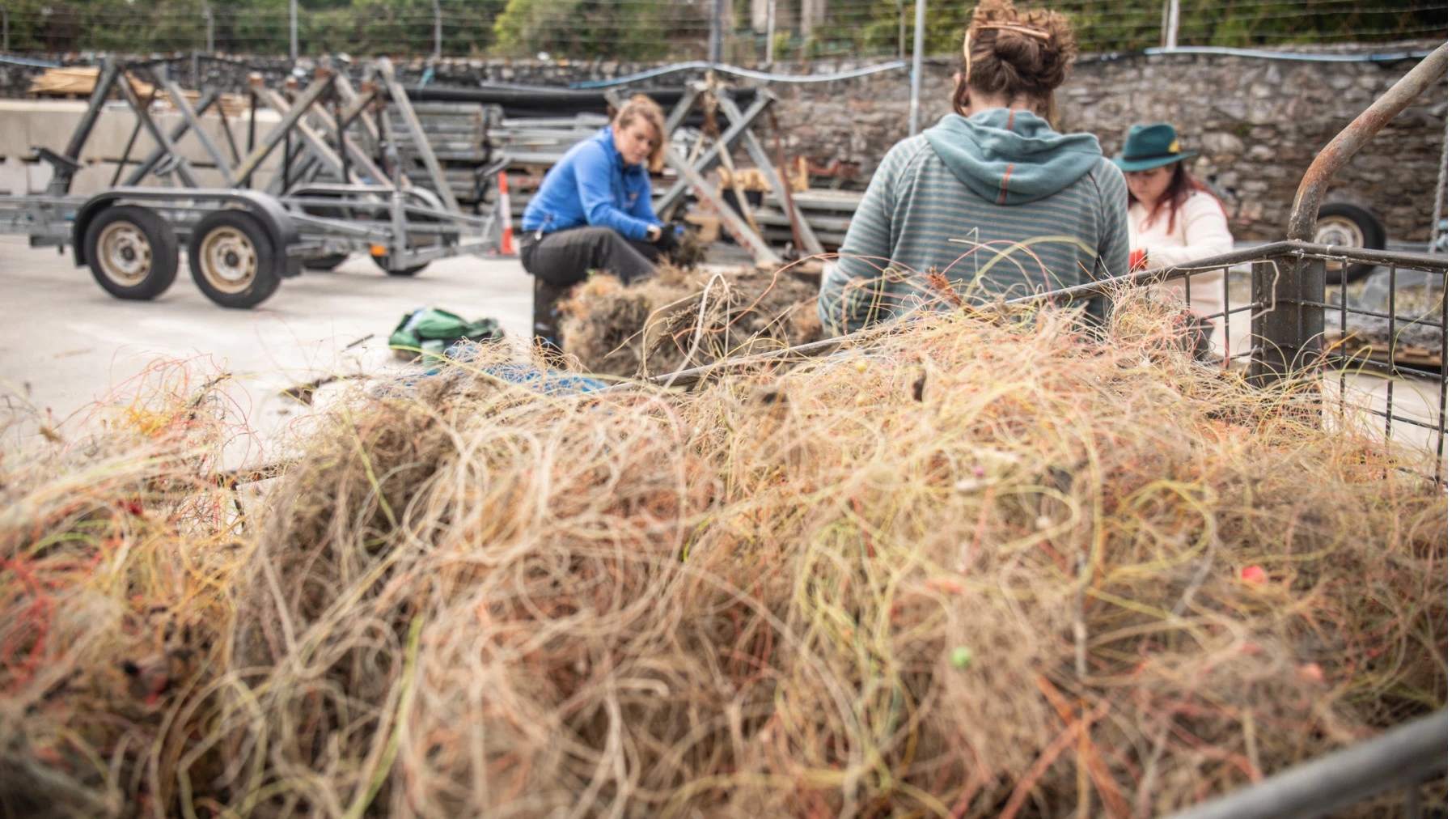
Each angler uses on average 1,245 metres of line in a year. Assuming there are around one million anglers in the UK alone, this equates annually to 1.245 million km of line- enough line to go around the world 195 times!
-
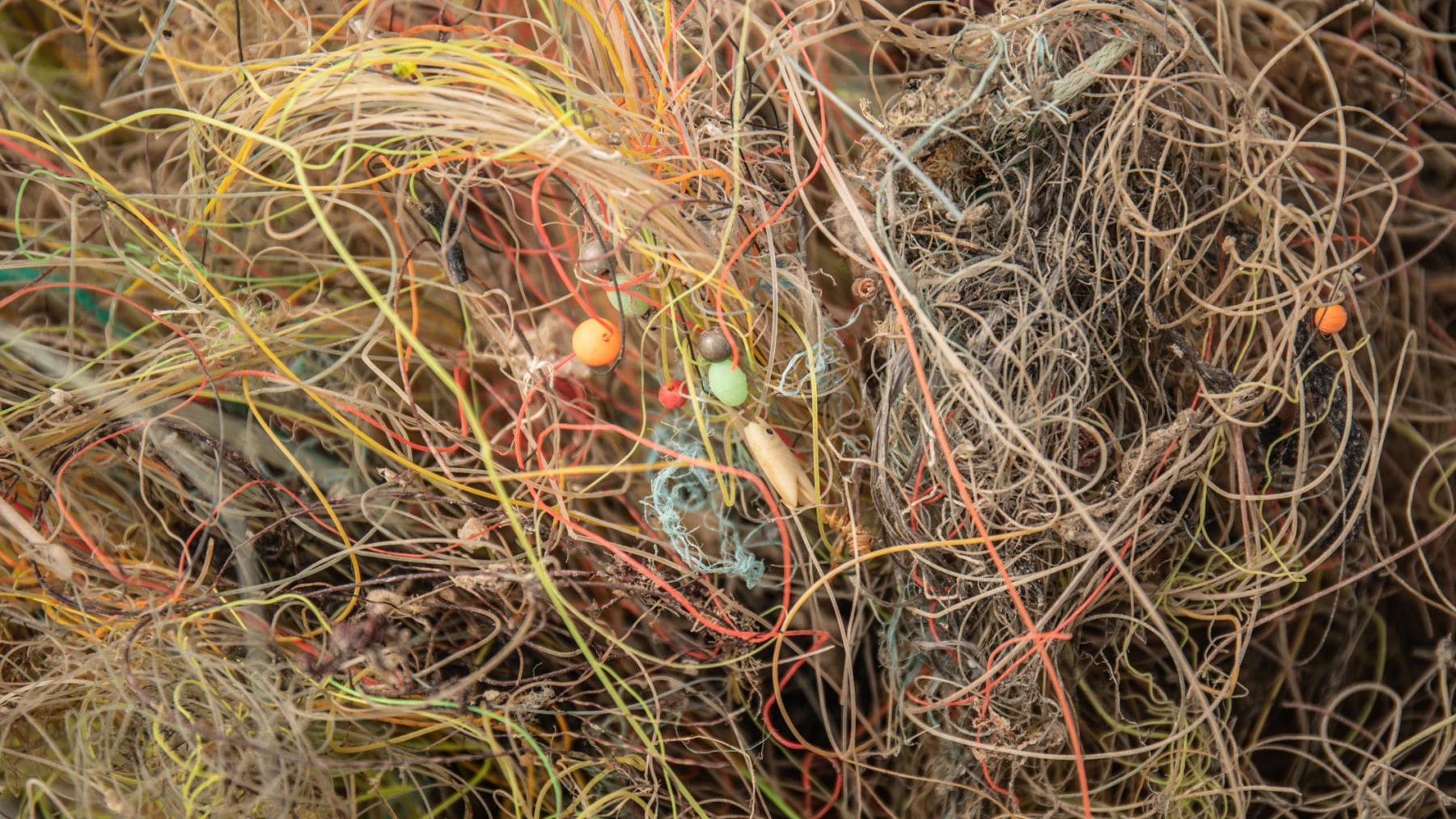
Whilst lost angling gear can be hazardous to bathers and a snagging threat to other anglers, it poses an even greater risk to the local wildlife including crustaceans, fish, mammals, avian species and coral. Whilst 40% of fishing gear items pose an interaction risk, 58% of them pose entanglement risks. Many times this will either lead to ingestion or death, often in a slow and painful manner.
Blog posts
View all-
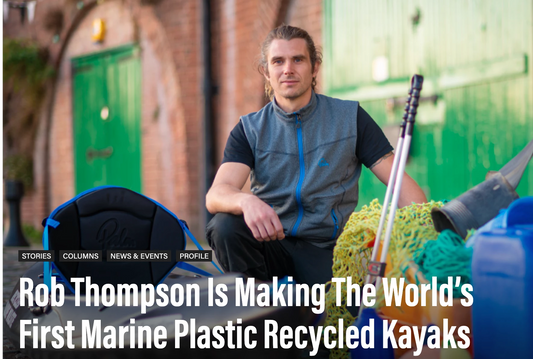
Paddling Magazine - Rob Thompson Is Making The ...
The idea came to Rob Thompson on the coast of Cornwall, in southwest England. Staring at the bulging bags of trash he and his friends had collected from a remote...
Paddling Magazine - Rob Thompson Is Making The ...
The idea came to Rob Thompson on the coast of Cornwall, in southwest England. Staring at the bulging bags of trash he and his friends had collected from a remote...
-
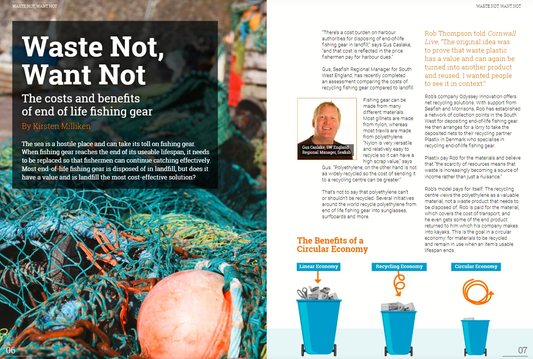
Waste Not Want Not | Odyssey Innovation: The c...
Rob Thompson told Cornwall Live, "The original idea was to prove that waste plastic had value and can again be turned into another product and reused. I wanted people to...
Waste Not Want Not | Odyssey Innovation: The c...
Rob Thompson told Cornwall Live, "The original idea was to prove that waste plastic had value and can again be turned into another product and reused. I wanted people to...
-
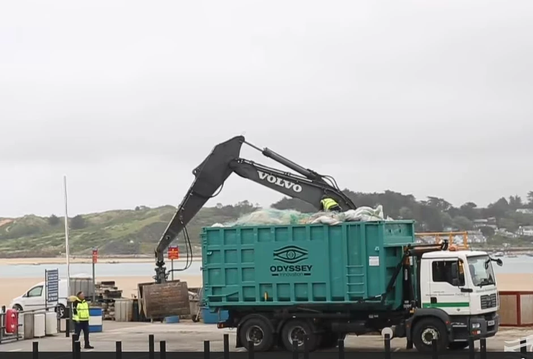
Morrisons - Wild Caught Seafood
Around 10% of all marine litter is derived from the fishing industry so we recognise our supply chain has a big part to play in supporting the reduction of marine...
Morrisons - Wild Caught Seafood
Around 10% of all marine litter is derived from the fishing industry so we recognise our supply chain has a big part to play in supporting the reduction of marine...





